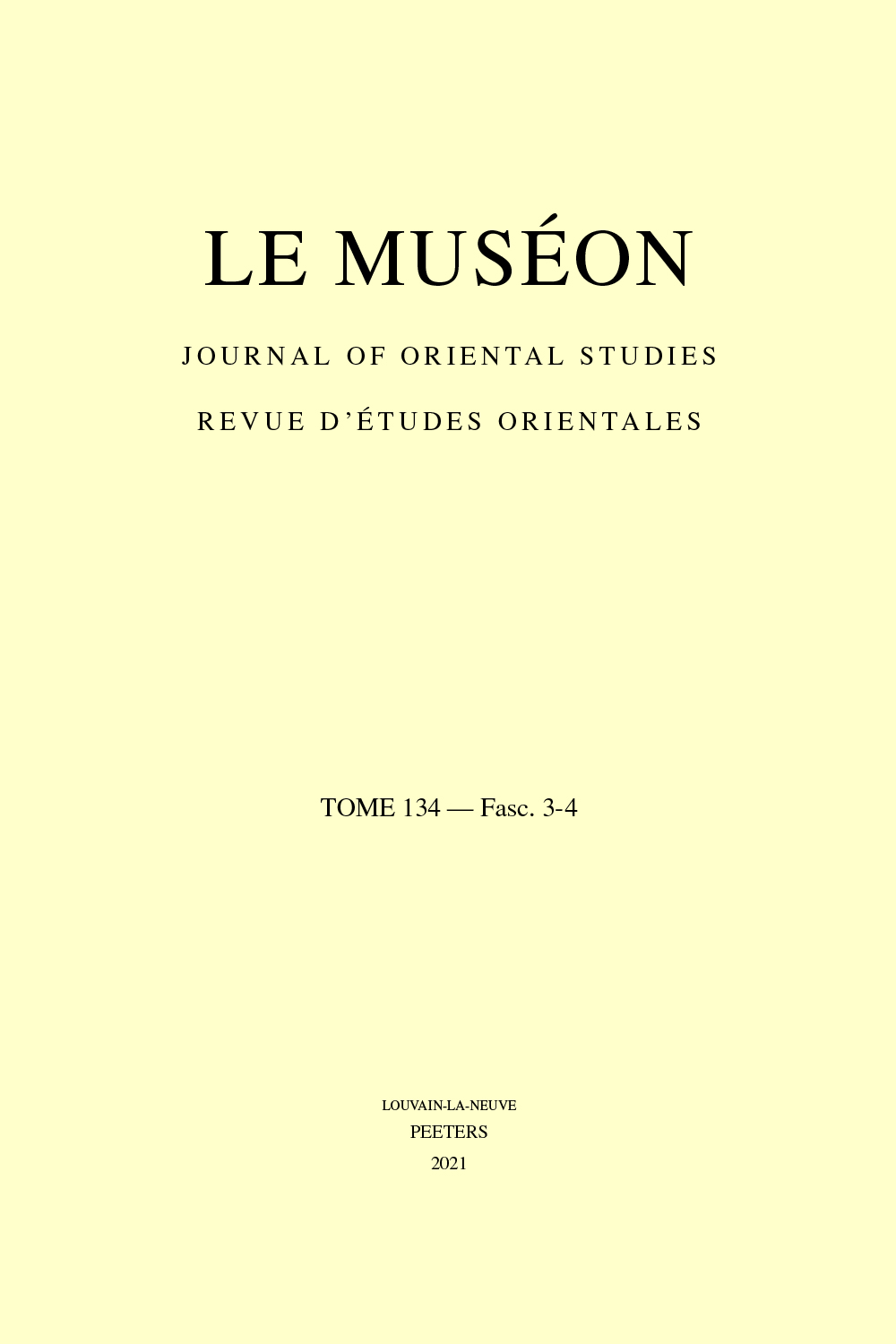 previous article in this issue previous article in this issue | next article in this issue  |

Preview first page |
Document Details : Title: On Some Definitions of the Art of Versification and Grammar in Byzantine and Georgian Literary Sources Author(s): BEZARASHVILI, Ketevan Journal: Le Muséon Volume: 121 Issue: 1-2 Date: 2008 Pages: 153-181 DOI: 10.2143/MUS.121.1.2120505 Abstract : This article analyzes the definition of the art of versification according to Greek texts and their Georgian translations. The definition existed simultaneously in two textual traditions. It focus primarily on the homilies of Gregory of Nazianzus, but also on other works related to his writings, i.e. commentaries on Gregory’s homilies, the Life and Enkomion of Gregory. Byzantine and Georgian literary sources mainly deal with two kinds of definitions of the classical art of versification: 1. versification as a part of hermeneutic grammar (which itself was a subject of general education), and 2. versification as an independent part of general education. Concerning the first kind of sources an unknown definition of grammar is discovered which might have originated from some anonymous Hellenistic definition. In the second kind of definitions the term ποιητική is used in its new limited meaning, namely, the study of classical poetry and its types in general, or in particular, metre, the art of versification, compared to the classical meaning of this term in Aristotle’s and Horace’s “Poetics”, which constituted the theory of literature and literary criticism as such. The terms in the Georgian translations of these analyzed Byzantine sources confirm the specific meaning of the Greek terms expressing versification. They also confirm the limited function of poetics in the Byzantine and Eastern Christian educational system as teaching the art of versification. In the last part of this article the sources of the analyzed texts supposed by me to be classical – the passages from Aristotle’s and Proklos’s works are studied. The article is supplied with these complete passages of all Greek and Georgian texts studied here within. |
|


